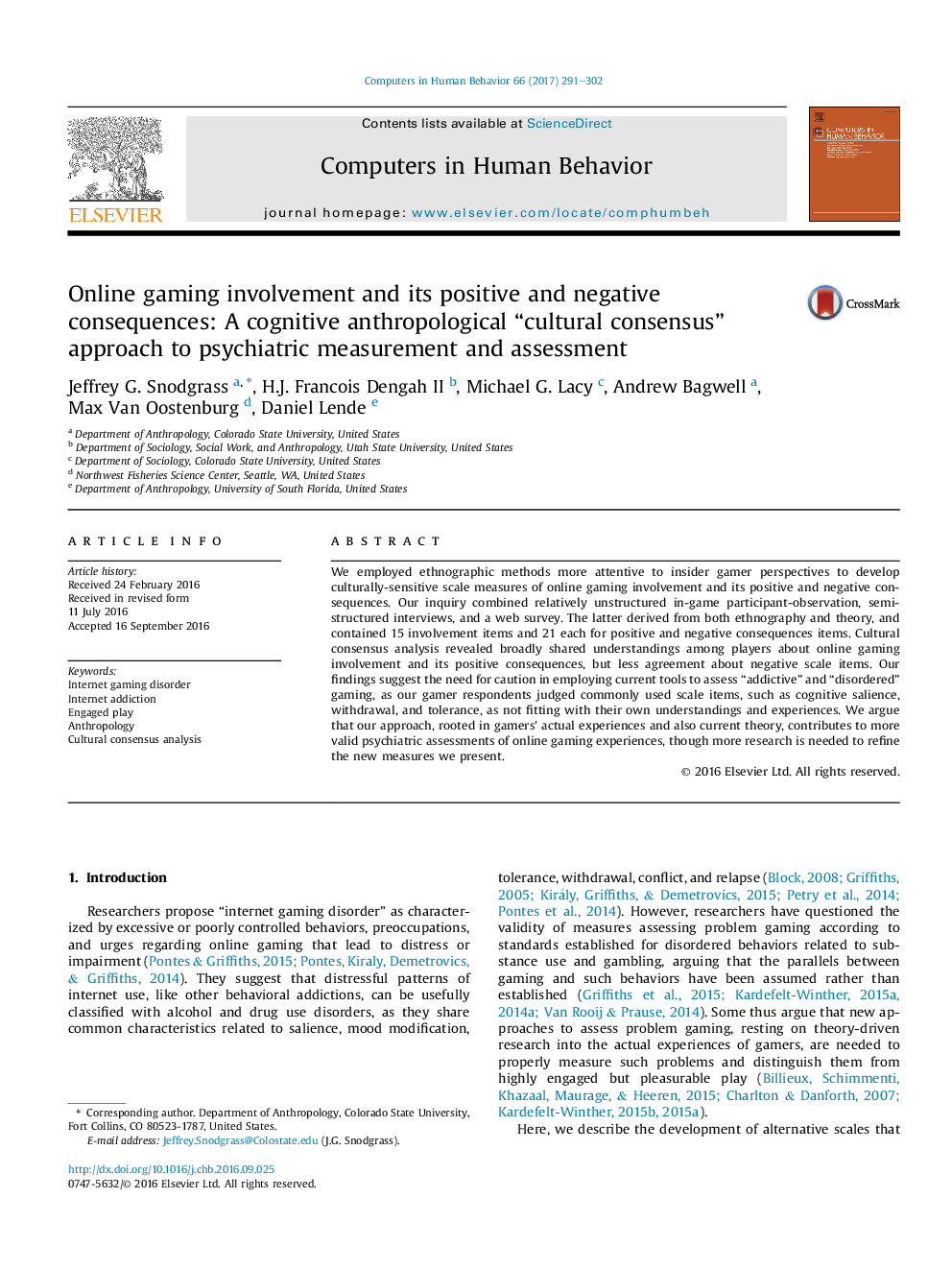| Article ID | Journal | Published Year | Pages | File Type |
|---|---|---|---|---|
| 4937748 | Computers in Human Behavior | 2017 | 12 Pages |
Abstract
We employed ethnographic methods more attentive to insider gamer perspectives to develop culturally-sensitive scale measures of online gaming involvement and its positive and negative consequences. Our inquiry combined relatively unstructured in-game participant-observation, semi-structured interviews, and a web survey. The latter derived from both ethnography and theory, and contained 15 involvement items and 21 each for positive and negative consequences items. Cultural consensus analysis revealed broadly shared understandings among players about online gaming involvement and its positive consequences, but less agreement about negative scale items. Our findings suggest the need for caution in employing current tools to assess “addictive” and “disordered” gaming, as our gamer respondents judged commonly used scale items, such as cognitive salience, withdrawal, and tolerance, as not fitting with their own understandings and experiences. We argue that our approach, rooted in gamers' actual experiences and also current theory, contributes to more valid psychiatric assessments of online gaming experiences, though more research is needed to refine the new measures we present.
Related Topics
Physical Sciences and Engineering
Computer Science
Computer Science Applications
Authors
Jeffrey G. Snodgrass, H.J. Francois II, Michael G. Lacy, Andrew Bagwell, Max Van Oostenburg, Daniel Lende,
